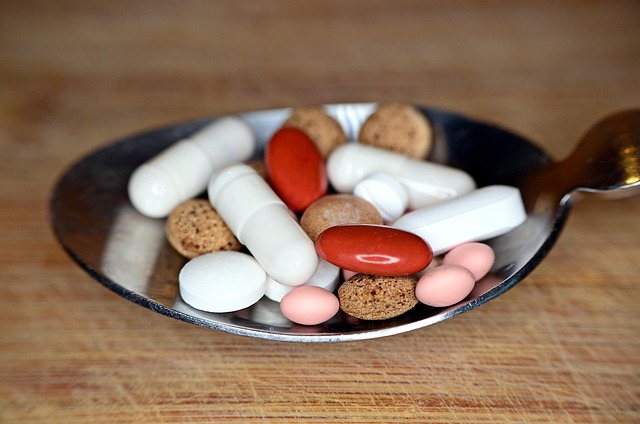The gut-brain connection reveals a close relationship between digestive health and mental wellness, especially in managing anxiety disorders. Probiotics, beneficial gut bacteria, produce neurotransmitters and short-chain fatty acids that interact with the nervous system, potentially offering a natural approach to anxiety relief therapy. Nutritional approaches, including probiotics and balanced diets, along with holistic therapies like mindful practices, support emotional balance and overall well-being when combined with traditional therapy methods for effective anxiety management.
“Unraveling the intricate link between gut health and anxiety management, this article explores innovative approaches to alleviate symptoms of anxiety disorders. We delve into the science behind the gut-brain connection, revealing how imbalances can impact mental well-being. Probiotics emerge as a promising tool, offering insights into their positive effects on reducing anxiety.
Additionally, we examine nutritional strategies and integrative therapies for a holistic anxiety relief approach, providing readers with effective tools to navigate and manage their condition.”
Understanding Gut-Brain Connection in Anxiety Disorders
The gut-brain connection, a growing area of interest in neuroscience, reveals a profound relationship between our digestive system and mental health, particularly in managing anxiety disorders. This bidirectional communication network allows for an intricate interplay where the brain influences gastrointestinal functions, and vice versa. In the context of anxiety relief therapy, understanding this link is transformative. The gut produces and secretes various neurotransmitters and neuroactive peptides that can affect mood and emotional states, making it a potential target for alleviating anxiety symptoms.
Research suggests that disruptions in this gut-brain axis are linked to increased anxiety and depression. Probiotics, beneficial bacteria residing in the gut, play a pivotal role here. They influence brain chemistry by producing compounds like neurotransmitters and short-chain fatty acids that interact with the nervous system. By modulating these chemical messengers, probiotics may offer a natural approach to anxiety relief therapy, promoting emotional balance and overall well-being.
Probiotics and Their Impact on Mental Well-being
Probiotics, often referred to as “good bacteria,” play a significant role in maintaining gut health. Beyond their well-documented benefits for digestion and nutrient absorption, recent research highlights their profound impact on mental well-being. The gut-brain axis, a bi-directional communication network between the gastrointestinal tract and the brain, explains this connection. Probiotics influence this axis by producing neurotransmitters and interacting with the immune system, which can modulate mood and reduce anxiety symptoms.
Anxiety relief therapy often targets the mind, but incorporating probiotics into this approach offers a promising complementary strategy. By supporting a balanced gut microbiota, these beneficial bacteria may contribute to better emotional regulation and overall mental health. Emerging studies suggest that certain strains of probiotics can help alleviate stress and anxiety, making them potential allies in managing these conditions alongside traditional therapy methods.
Nutritional Approaches to Support Anxiety Relief
Nutritional approaches can play a significant role in supporting anxiety relief therapy. Incorporating certain foods and supplements, like probiotics, into your diet may help manage symptoms of anxiety. Probiotics, beneficial bacteria that reside in our gut, have been linked to improved mental health. They influence neurotransmitters and hormones involved in regulating mood, reducing stress, and promoting overall well-being.
Beyond probiotics, a balanced diet rich in whole foods, antioxidants, and omega-3 fatty acids can also benefit anxiety relief. Foods high in B vitamins, such as leafy greens and nuts, support nerve function and energy levels, while magnesium-rich foods like spinach and avocado aid in calming the nervous system. Additionally, staying hydrated, limiting caffeine and sugar intake, and ensuring adequate sleep can significantly impact anxiety management, working alongside traditional therapy methods.
Integrative Therapies for Holistic Anxiety Management
In the quest for holistic anxiety management, integrative therapies have emerged as powerful tools alongside traditional treatments. These alternative approaches focus on the mind-body connection, recognizing that emotional well-being is intricately linked to physical health, particularly gut health. By harnessing the power of natural remedies and techniques, individuals can achieve lasting anxiety relief.
One such therapy is probiotic supplementation, which has gained significant attention for its potential benefits in reducing anxiety symptoms. Probiotics, often referred to as “good bacteria,” play a crucial role in maintaining gastrointestinal balance. Research suggests that these beneficial microorganisms can influence the brain-gut axis, leading to improved mood and reduced stress responses. As such, incorporating probiotic-rich foods or supplements into one’s routine may contribute to effective anxiety management alongside conventional therapy for anxiety relief.
The gut-brain connection is a powerful tool in managing anxiety, offering a promising avenue for holistic anxiety relief. By incorporating probiotics and adopting nutritional approaches, individuals can support their mental well-being and explore effective anxiety relief therapies. Integrative treatments that combine dietary changes with traditional practices provide a comprehensive strategy to navigate anxiety disorders. Remember, prioritizing gut health is an essential step towards fostering resilience and enhancing overall mental wellness.
